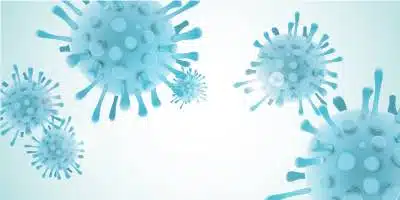
Watch this Article in Video Format
Does Hand Washing work?
Some sanitisers won’t stop the spread of Covid-19, so an Antibody checkup is necessary. This guide explains how sterilisation works to kill viruses. Herpes Tests are needed as it’s still unclear if this fixes it. It recommends the best method to use. Some brands won’t stop the spread of this illness. This guide explains how it works. Read on to learn more about how to defend yourself from diseases. A CBC Test works well with the advice from the CDC to check on your health and to stay aware.
Which disinfectant works best?
Months have passed since the Covid-19 pandemic. The infection caused a rise in the sale of cleaning products. Customers are unable to gather in stores. Sellers do this to prevent overcrowding as people seek relief during this outbreak. It is proof that cleansers can prevent infections. Some sanitisers do not have alcohol. Other kinds of disinfectants have alcohol. Alcohol-based products differ in extent and form. They range from 60 to 95 per cent alcohol. Some types are isopropyl, alcohol, ethanol, or propanol.
Many CBC studies confirm that alcohol used in most products helps to destroy germs.
A battle to destroy diseases
Alcohol destroys the viruses on your skin by targeting the layer holding germs. Alcohol must surpass a concentration of 60 per cent to destroy microbes. Disinfectants with an alcohol percentage below 60 might not destroy some viruses. They only discourage the growth of bacteria. These products cannot kill germs. People make their own solutions instead of shop-bought ones. Are you producing yours, too? Some may not work as well as the products on the high street.
Covid-19 is like many viral respiratory diseases. It’s like the flu or the common cold. Herpes checking helps to see if the infection has happened from that virus. The disease spreads as droplets pass from one person to another. Faeces can also spread the virus. Do we have a chance for sanitiser or handwashing? “Don’t touch your face” is a common phrase during this epidemic. The saying discourages us from touching our heads with dirty fingers. You may get viruses by contacting something infected with the disease, especially after getting an Antibody exam. That’s why disinfecting your skin with an alcohol-based product is essential. But how does this illness get into your body? The pathogen enters your body by touching your face.
How does it stop the spread of germs?
Washing with warm water and soap encourages hygiene. It also helps to keep transmittable infections from spreading. Cleaning with warm water and soap extracts oils, which can allow bacteria into our bodies. Are you trying to wash your hands? Or can’t you get water or soap? If so, don’t worry. Use sanitiser to avoid microbes. They are also known to reduce germs’ count and size successfully. Are your fingers filthy? If so, wash with soap and water. CBC checks help with disease control.
Soap detergent and cleaning reduce the number of bacteria in our bodies. They also work well in cleaning the soil and organic matter on the skin. However, this is not the case with some types of hygiene procedures. Are you covering your nose and mouth using your hands as you cough or sneeze? Disinfect them using soap and water. Sanitiser does not function as well if the hands have mucous.
Herpes testing works for checking on your sexual health. Remember, as mucous covers the microbes making, sterilising is hard. So, do they kill Covid-19 viruses? Some can kill most microorganisms. However, some microbes may survive. So, you may still get this disease even with frequent cleansing unless you regularly take a CBC test. Washing would be more productive and safer than the alcohol-based products bought on the high street in killing viruses.

